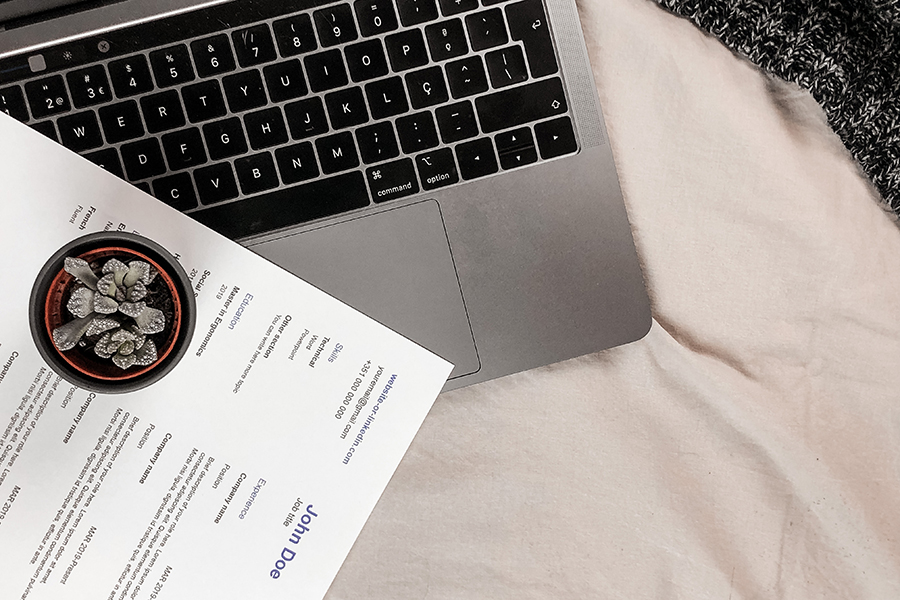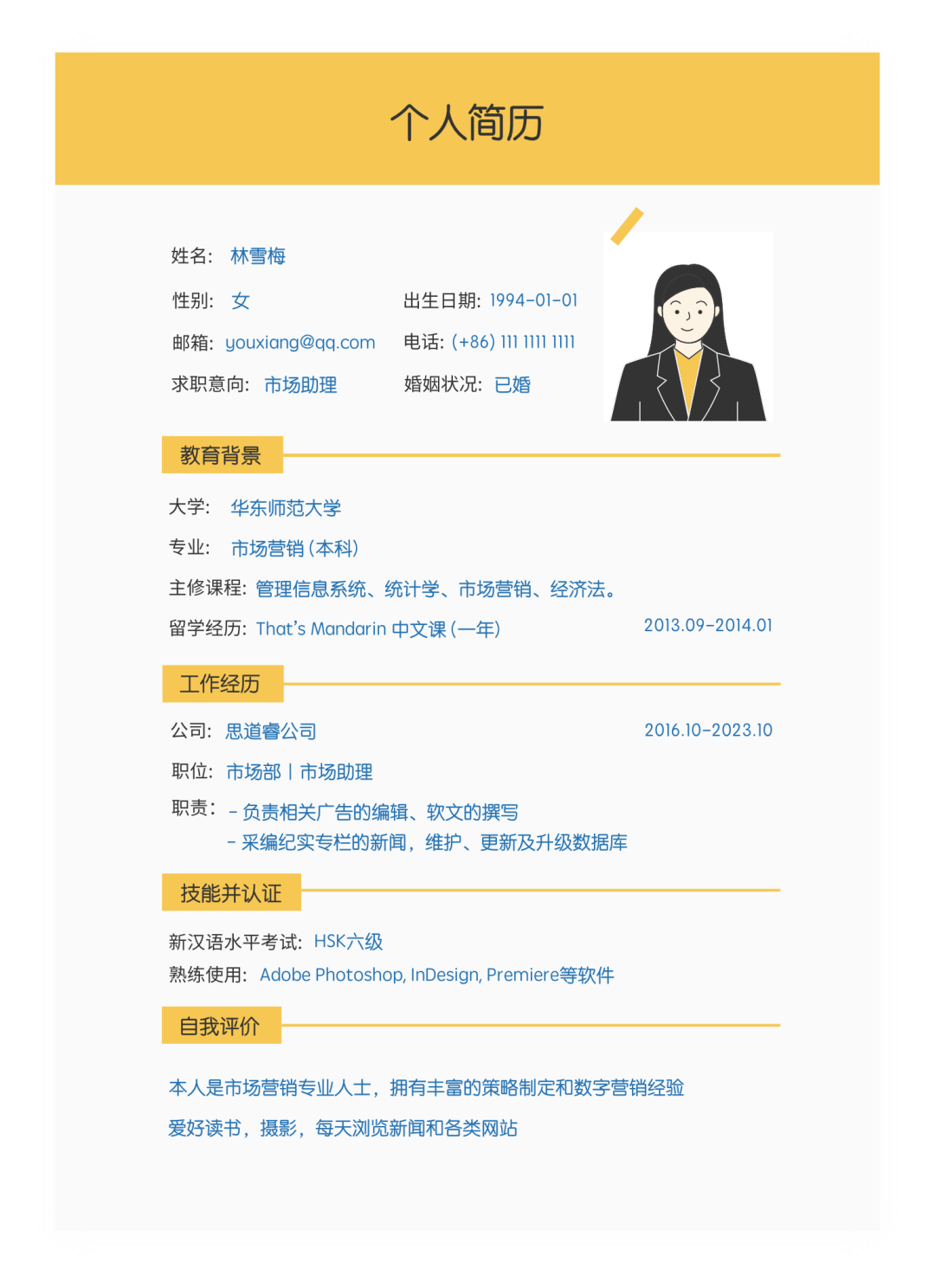
[Photo/Unsplash]
Thinking about working in China?
You'll most likely need to provide your resume in Chinese —中文简历 (Zhōng wén jiǎn lì).
In this week's article, we'll guide you through the essential Chinese vocabulary to craft an impressive CV.
CV-related Vocabulary
Let's follow our NihaoCafe character May through the process of crafting her 中文简历 (Zhōng wén jiǎn lì).
01. Personal Information
The first section of resume is usually personal information — 个人信息 (gè rén xìn xī). It will include fields such as:
姓名
xìng míng
full name
性别
xìng bié
gender
出生日期
chū shēng rì qī
date of birth
联系方式
lián xì fāng shì
contact Information
NOTE
Contact information usually includes basic information such as phone number, or 电话 (diàn huà), and e-mail address, or 邮箱 (yóu xiāng).
求职意向
qiú zhí yì xiàng
desired position
GOOD TO KNOW
It may be rare for resumes in English, but it's pretty common in China to provide personal information like health condition, or 健康状况 (jiàn kāng zhuàng kuàng); marital status, or 婚姻状况 (hūn yīn zhuàng kuàng); and even height, or 身高 (shēn gāo).
02. Educational background
Next section that is important to add to your CV is educational background, or 教育背景 (jiào yù bèi jǐng). You can list your academic experiences from newest to oldest.
学校
xué xiào
school/university
专业
zhuān yè
major
学位
xué wèi
highest degree obtained
毕业日期
bì yè rì qī
graduation date
主修课程
zhǔ xiū kè chéng
major courses
Including major courses into your CV can provide valuable insights into your academic background and expertise.
If you have any extra achievements — scholarships, completed training programs, or experience studying abroad — definitely include them in your CV.
留学经历 (liú xué jīng lì) ∙ experience studying abroad
奖学金 (jiǎng xué jīn) ∙ scholarship(s)
项目经验 (xiàng mù jīng yàn) ∙ special program(s)
03. Work Experience
Right after your educational background, you can list your 工作经历 (gōng zuò jīng lì), or work experience.
Make sure to choose the work experience that corresponds with the position you're applying for. It's important to tailor this section to the specific job or industry.
公司
gōng sī
company
职位
zhí wèi
position
就职时间
jiù zhí shí jiān
duration of employment
职责
zhí zé
job responsibilities
NOTE
You can also use these keywords to highlight your work experience:
业绩 (yè jì) ∙ noteworthy accomplishments
重要成就 (zhòng yào chéng jiù) ∙ key achievements
04. Skills and Certifications
技能并认证 (jì néng bìng rèn zhèng), is a section where you can incorporate your skills and expertise, showcase your language proficiency, add relevant certificates, etc. Again, make sure to tailor this section to the position you're applying for.
语言能力
yǔ yán néng lì
language proficiency
熟练使用……
shú liàn shǐ yòng ...
to be proficient in using (+ tool)
05. Self Evaluation
The last section of a Chinese CV includes self-evaluation part, or 自我评价 (zì wǒ píng jià). Feel free to include more personal information there — your hobbies, interests, etc.
爱好
ài hào
hobby
兴趣
xìng qù
interest; taste
个人经验
gè rén jīng yàn
personal experience
Write Your Own 个人简历
Time to write your CV!
Here is a typical format for a resume in Chinese — you can use it as an example when creating your own.

[Photo/That's Mandarin]
加油!
Good luck on your journey!
Source: That's Mandarin
Editor: wanwan